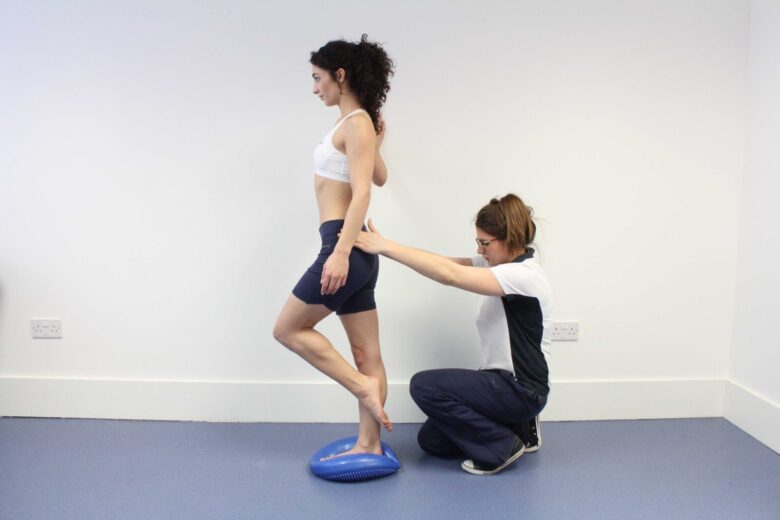Many individuals consider physiotherapy as a valuable resource for addressing various health concerns.
You hear your friends visit their therapist often. You wonder if it’s worth it. Are you missing out? Many people will tell you that it’s a Noosa physio that have helped them manage or event prevent health challenges.
During physiotherapy treatment, your therapist can incorporate a range of activities, whether it’s related to massaging, giving you exercises to do or assisting with movement of certain parts of the body. Usually, the focus of these activities is about improving movement and function to a certain area.
And as this list shows, it has many applications.
Pain Management

When your therapist is massaging parts of your body, they work on soft tissue, tendons, joints and muscles where you may experience discomfort. Their actions can reduce the tension in that area and even prevent spasms while massaging can result in nerve fibres being stimulated.
An interesting outcome is that physiotherapy actions can impact pain messages that are being sent to the brain. This is possible when a massage affects nerve fibres. As a result, it’s possible that fewer pain notifications reach your brain, so the patient experiences less pain than before.
All of this is good news for people who face pain on a regular or even continual basis. Your physiotherapist helps your body handle pain in a different way, so you get some relief.
This application of physiotherapy brings hope to many people, including but not limited to:
- Athletes
- People who gym regularly
- Patients facing arthritis or back pain
- Patients recovering after operations
Proactive Healthcare
Physiotherapy shouldn’t be labelled as a therapy only to consider once something has ‘gone wrong’. The techniques can actually help prevent certain issues from occurring.
Prevent Injuries
Another interesting outcome of physio work is that your muscles will become stronger. Also, because massages and movement during therapy will improve blood flow and mobility, it puts your body in a healthier state than before. A situation that would usually lead to injury, such as a fall or strenuous session at the gym, will then have less of an impact.
Reduce the Need for Surgery
This therapy is also worth considering before you commit to go onto the operating table.
Of course, surgery does have its place. But some people, even individuals with knee arthritis, have seen immense improvement by first going for some physio, even to the extent of an operation no longer being necessary.
The same goes for meniscus injuries and therefore it’s worth discussing the topic with your doctor. Physiotherapy could be an alternative to surgery in many cases and if your doctor and physio can work together, you may enjoy recovery beyond expectation, without the risks of surgery and without having to pay the costs for such a procedure.
Boost Your Balance

Another way physiotherapy can help someone avoid unnecessary doctors’ visits and expenses is by preventing an injury taking place in the first place. Physiotherapy exercises have successfully been used to help certain people improve their balance.
Here the approach often applies to older people or individuals who experience vertigo. Your physio can incorporate balance training into your treatment plan, along with activities that ensure better posture. This can be valuable in situations where patients are likely to lose their balance.
Exercises can train your body to respond in a certain manner and along with strengthening muscles, it reduces the likelihood of you falling. Even if you do, the body strengthening of the physio sessions can result in the injuries being much less serious than they would have been.
More Mobility
As mentioned, physios help improve the functioning of tendons, joints and muscles. This can help improve your overall mobility, as your joints will be more flexible. This can even impact your general coordination and balance (already discussed above).
While this is good news for anyone, ensuring optimal functioning of your body as you grow older carries great value for older people. The better your body can function, the more independence you can have as you’ll be less reliant on family or healthcare personnel assisting you with daily tasks.
While the health benefits are obvious, this can even have a psychological impact as it prevents feelings of embarrassment or thinking you’re a burden on your loved ones. Indirectly, physiotherapy is a way of enhancing mental health in many patients’ cases.
Final Thoughts

Chances are that one of these listed aspects will be relevant to your life—if not now, then at some stage in future. Scan through and make an informed decision about your wellbeing.
Yes, the cost of beneficial services and procedures often make people apprehensive about committing. However, this list clearly shows how something like physiotherapy is an excellent preventive measure, that can save you money in the long term.
And if it’s part of your recovery journey, your therapist will play a vital role in helping you regain optimal quality of life again.
In conclusion, physiotherapy stands as a multifaceted solution, offering pain relief, injury prevention, and enhanced mobility. Its proactive approach not only aids in recovery but also mitigates the need for invasive procedures like surgery. By promoting balance, strength, and flexibility, physiotherapy fosters independence and improves overall quality of life, especially for older individuals. Moreover, its positive impact extends beyond physical well-being, contributing to mental health and overall wellness. Whether as a preventive measure or a component of rehabilitation, the benefits of physiotherapy underscore its significance in maintaining optimal health and functionality throughout life.

